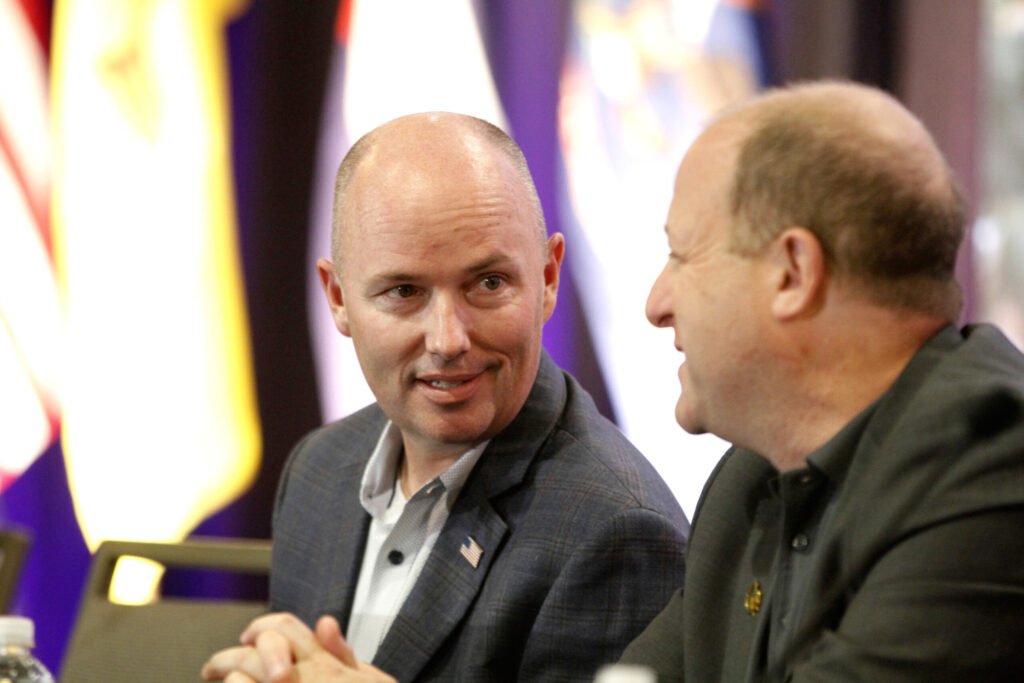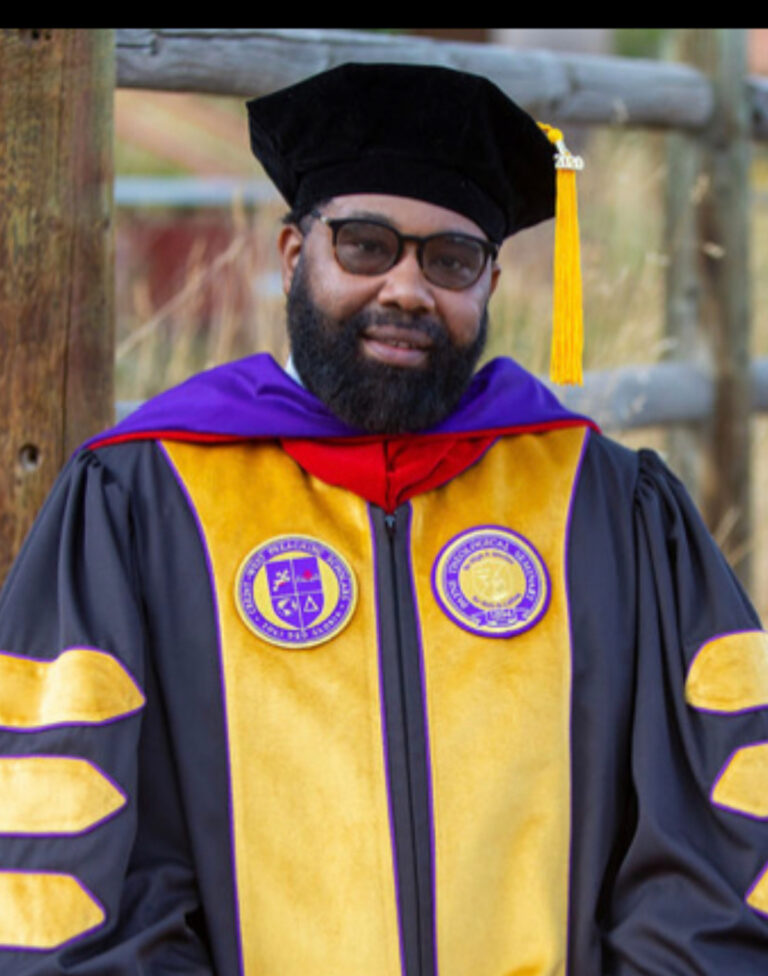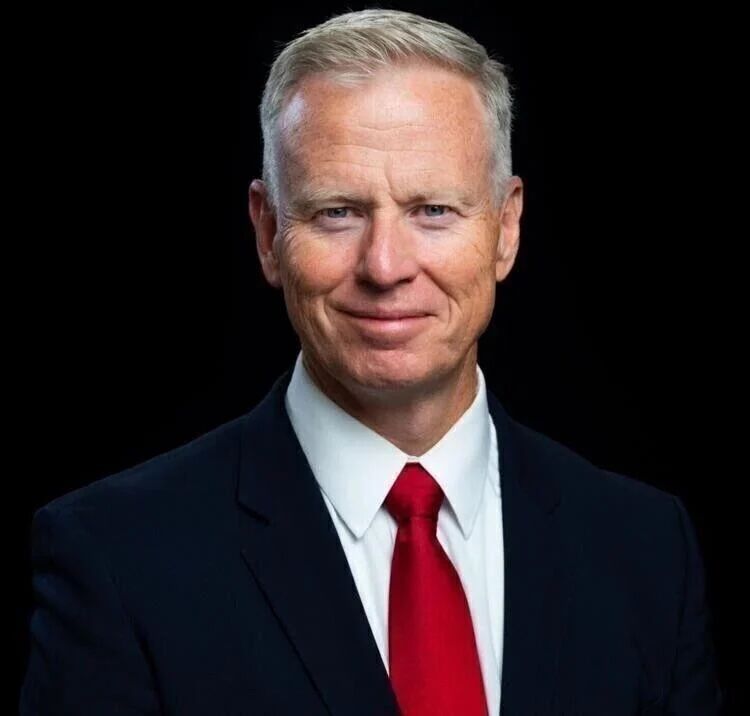Leadership capital — and its paradoxes | CRONIN

“Leadership capital” is a general metaphor used in business, politics and the military to denote a “leader” has approximately so much prestige or useable “currency.” It is not exactly the same as power or position, yet it is related. One can have an important position, for example, but have lost your leadership capital.
Leaders gain capital when they have successful campaigns, or develop an impressive track record or win victories on the battlefield or athletic field.
It must be earned, it can be enhanced, yet it is fragile — and can be waisted or squandered.
President Richard Nixon lost all his political capital when reporters and members of Congress discovered his illegal political schemes and coverups connected with his 1972 campaign. Then-President Joe Biden lost whatever capital he had left in his scary, sad “amnesiac” debate with his opponent in 2024.
General Dwight D. Eisenhower earned great respect and earned impressive leadership capital when he successfully directed the 1944 Normandy invasion and later, as president, helped bring an end to the Korean War.
Leaders in business earn capital when they help launch innovative consumer products like iPhones, Alexa and ChatGPT services. Or when they preside over financially advantageous corporate mergers and acquisitions.
“Leadership capital” defies easy measurement yet we can liken it to a leader’s bank account in terms of currency and legitimacy. Leaders need credibility and authority to build coalitions and gain the support they need to enact and execute programs. A leader or coach or commander can talk all they want to — but achievements can only be won when large teams of colleagues or subordinates help get things done to achieve a leader’s vision.
President Lyndon Johnson kept saying we were winning the war in Vietnam. But even though he had won a landslide electoral victory in 1964, his political capital kept declining during the next few years as U.S. forces kept getting defeated. People lose confidence in anyone who brags too much and can’t deliver on their pledges.
The same is true in business. Enron, Lehman Brothers and Bernie Madoff’s Ponzi fiasco all enjoyed considerable capital until their accounting schemes and corruption bankrupted their enterprises and, in these instances, earned scorn and repudiation.
The lesson is clear. Leadership capital is contingent — and fragile. It can be earned and enlarged by prudent decision-making and break-throughs and it is depleted by broken promises, failed missions, unethical behavior and lying.
The more leadership capital one can acquire the more one can motivate and encourage colleagues — and achieve shared objectives for the common good.
I have written elsewhere about the paradoxes of the presidency and the paradoxes of leadership. Two books helped clarify my understanding of these concepts and leadership capital. I recommend and borrow from both. Jocko Willink and Leif Babin “The Dichotomy of Leadership” (St Martin’s, 2028) and Larry Bossidy and Ram Charan, “Execution: The Discipline of Getting Things Done” (Currency, 2009).
Here are a few of the paradoxical contradictions that capital-maximizing leaders must successfully balance.
1. Leaders have to get to know their teams (and troops) and develop spirit, community and trust. Bonding, respect and collegial love forge unity and coherent execution. Willink and Babin, two former Navy Seals, note on the battlefield a “band of brothers” ethos becomes invaluable in ensuring a successful mission.
Yet, and here’s the paradox, military leaders understand too that they may have to send their team members on “high risk” missions to accomplish specified war plans. Leaders must balance their affection and empathy with the recognition that they have a job to do.
Willink and Babin write “a leader may have to send his most treasured asset — his people — into a situation that gets them wounded or killed. If his relationships are too close, and he can’t detach from his emotions, he might not be able to make the choices that involve risk to his men.”
Commanders must balance their emotional bonds and commitments with subordination to accomplishing the military mission.
However, if the leader gets overly committed to the mission at the expense of his team that leader risks losing leadership capital and being considered callous, reckless and not deserving of the respect a leader needs.
This same dichotomy exists in business, sports and similar professions.
Every leader wants to enrich comradery and bonding — yet every leader needs productivity and a commitment to excellence and when team members become ineffective, unproductive or dysfunctional leaders are compelled to fire them.
Leaders also need to balance addressing inadequate performance decisively while also considering second chances and time for associates to improve.
This is just one of multiple balancing challenges that come along with exercising leadership responsibilities.
2. A leader needs to own the ultimate responsibility for an organization’s mission. A leader can delegate efficiency but not effectiveness.
Leaders needs to know when to be in charge–and when to empower others to lead, and when to decentralize decision-making. Own it, yet empower others — that’s the challenge.
Former General Electric executive and chairman of Honeywell International, Larry Bossidy addressed this paradox, saying you have to regularly show up, “you have to conduct rigorous business reviews, you can’t be detached and removed.”
You have to ask tough questions, get involved in operations that aren’t working properly and absolutely ensure that compensation systems reward the doers.
On the other hand, leaders must avoid micromanaging. Getting too involved the day-to-day operations can undermine the development of emerging leaders and stifle creativity. It also risks what in “sports-talk” is called the problem of “too many coaches and not enough players.”
The key is to bring out the best in everyone in one’s organization, empower other leaders and know when and how to artfully delegate as much as possible.
3. Leaders need to be aggressive, tough and self-confident, yet also be compassionate, humble and decent human beings.
Navy Seals Willink and Babin write that “An aggressive mind-set should be the default setting of any leader.” This means, they add, that “the best leaders, the best teams, don’t wait to act. Instead, understanding the strategic vision… they aggressively execute to overcome obstacles, capitalize on immediate opportunities, accomplish the mission and win.”
Yet being tough and aggressive does not mean a leader is allowed to be reckless. Being tough is not the same as being arbitrary and mean.
Having strong self-confidence is a positive unless it veers into an overbearing swollen ego and narcissism.
Herein lies yet a deeper paradox. Being aggressive may often be a strength as opposed to being too passive and detached. Yet, being super confident and too strong-willed may undermine the equally important need for humility.
Humility allows a leader to admit errors, mistakes and miscalculations. “Making mistakes is inevitable” writes Larry Bossidy, “but good leaders both admit and learn from them and over time create a decision-making process based on experience.”
Emotional intelligence is the balancing ability to know when to be aggressive and even bull-headed about a priority and when to compromise and reassess your plans.
Strong leaders typically have strong weaknesses as well. Effective leaders must know as much as possible about their strengths, weaknesses, biases and motivations. They know how to fire people up, fire them and when to accept blame and forgive others. When to use the heart, when to use the fist.
4. Leaders, like actors, crave attention, applause and acceptance. They like winning elections, victories and prizes. And there is the temptation to overpromise and brag about achievements.
Stagecraft is a fundamental aspect of leadership in every profession.
Leaders must hone their self-promotion, likeability and leadership assets while at the same time, trying not to seem pretentious or phony. We detest fakers, yet yearn for “Top Gun” and General George S. Patton type performances. We may admire humility and moral leadership yet also like swagger —the John Wayne, Marlon Brando, James Bond style.
It is part of the paradox of leadership that we might want contradictory things from a leader at the same time, or at least in the same period. We admire Gandhi and yet also, on occasion, Machiavelli’s prince. For example, we sometimes approve of ” walking with the devil until one has crossed the bridge”.
Leaders must understand how to connect with audiences, they have to understand symbolism and emotions. Yet we demand they tell us the truth. Effective leaders do the right thing, for the right reasons, toward achieving the right ends. Citizens and subordinates will turn on misleaders and manipulators.
These are just a few of the paradox’s leaders have to balance. Leadership capital is fragile, it must be earned and replenished — and it can be easily lost.
Leaders without followers cannot long survive. People nowadays resent being treated as subjects. A coach who has” lost his or her locker room” has a huge problem. A leader without a respectful following is like a painter without paint. Nixon, Carter and Biden learned this. Enron, Lehman Brothers and Bernie Madoff learned this.
Tom Cronin is a news columnist and co-author of the prize-winning book, “Leadership Matters” (soon to be in a second edition).













